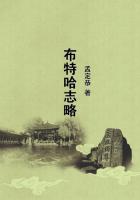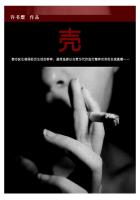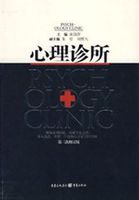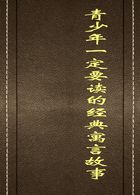The psalms and hymns of the reformers were composed in times of great religious excitement. Calvin was far behind Luther, who did not separate the art of music from religion; but Calvin made a divorce of art from public worship. Indeed, the Reformation was not favorable to art in any form except in sacred poetry; it declared those truths which save the soul, rather than sought those arts which adorn civilization. Hence its churches were barren of ornaments and symbols, and were cold and repulsive when the people were not excited by religious truths. Nor did they favor eloquence in the ordinary meaning of that word. Pulpit eloquence was simple, direct, and without rhetorical devices; seeking effect not in gestures and postures and modulated voice, but earnest appeals to the heart and conscience. The great Catholic preachers of the eighteenth century--like Bossuet and Bourdaloue and Massillon--surpassed the Protestants as rhetoricians.
The simplicity which marked the worship of God as established by Calvin was also a feature in his system of church government. He dispensed with bishops, archdeacons, deans, and the like. In his eyes every man who preached the word was a presbyter, or elder; and every presbyter was a bishop. A deacon was an officer to take care of the poor, not to preach. And it was necessary that a minister should have a double call,--both an inward call and an outward one,--or an election by the people in union with the clergy. Paul and Barnabas set forth elders, but the people indicated their approval by lifting up their hands. In the Presbyterianism which Calvin instituted he maintained that the Church is represented by the laity as well as by the clergy. He therefore gave the right of excommunication to the congregation in conjunction with the clergy.
In the Lutheran Church, as in the Catholic, the right of excommunication was vested in the clergy alone. But Calvin gave to the clergy alone the right to administer the sacraments; nor would he give to the Church any other power of punishment than exclusion from the Lord's Supper, and excommunication. His organization of the Church was aristocratic, placing the power in the hands of a few men of approved wisdom and piety. He had no sympathy with democracy, either civil or religious, and he formed a close union between Church and State,--giving to the council the right to choose elders and to confirm the election of ministers. As already stated, he did not attempt to shield the clergy from the civil tribunals. The consistory, which assembled once a week, was formed of elders and preachers, and a messenger of the civil court summoned before it the persons whose presence was required. No such power as this would be tolerated in these times. But the consistory could not itself inflict punishment; that was the province of the civil government. The elders and clergy inflicted no civil penalties, but simply determined what should be heard before the spiritual and what before the civil tribunal. A syndic presided in the spiritual assembly at first, but only as a church elder. The elders were chosen from the council, and the election was confirmed by the great council, the people, and preachers; so that the Church was really in the hands of the State, which appointed the clergy. It would thus seem that Church and State were very much mixed up together by Calvin, who legislated in view of the circumstances which surrounded him, and not for other times or nations. This subordination of the Church to the State, which was maintained by all the reformers, was established in opposition to the custom of the Catholic Church, which sought to make the State subservient to the Church. And the lay government of the Church, which entered into the system of Calvin, was owing to the fear that the clergy, when able to stand alone, might become proud and ambitious; a fear which was grounded on the whole history of the Church.
Although Calvin had an exalted idea of the spiritual dignity of the Church, he allowed a very dangerous interference of the State in ecclesiastical affairs, even while he would separate the functions of the clergy from those of the magistrates. He allowed the State to pronounce the final sentence on dogmatic questions, and hence the power of the synod failed in Geneva. Moreover, the payment of ministers by the State rather than by the people, as in this country, was against the old Jewish custom, which Calvin so often borrowed,--for the priests among the Jews were independent of the kings. But Calvin wished to destroy caste among the clergy, and consequently spiritual tyranny. In his legislation we see an intense hostility to the Roman Catholic Church,--one of the animating principles of the Reformers; and hence the Reformers, in their hostility to Rome, went from Sylla into Charybdis. Calvin, like all churchmen, exalted naturally the theocratic idea of the old Jewish and Mediaeval Church, and yet practically put the Church into the hands of laymen. In one sense he was a spiritual dictator, and like Luther a sort of Protestant pope; and yet he built up a system which was fatal to spiritual power such as had existed among the Catholic priesthood. For their sacerdotal spiritual power he would substitute a moral power, the result of personal bearing and sanctity. It is amusing to hear some people speak of Calvin as a ghostly spiritual father; but no man ever fought sacerdotalism more earnestly than he. The logical sequence of his ecclesiastical reforms was not the aristocratic and Erastian Church of Scotland, but the Puritans in New England, who were Independents and not Presbyterians.















